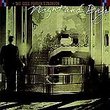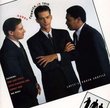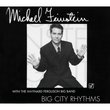| All Artists: Simon Rattle Title: Symphony No. 5 Members Wishing: 0 Total Copies: 0 Label: EMI Classics Release Date: 11/5/2002 Genre: Classical Styles: Chamber Music, Historical Periods, Classical (c.1770-1830) Number of Discs: 1 SwapaCD Credits: 1 UPCs: 724355738523, 724357538527 |
Search - Simon Rattle :: Symphony No. 5
 | Simon Rattle Symphony No. 5 Genre: Classical
Mahler called himself a "summer composer," writing most of his music in the countryside he loved during vacations from his duties as director of the Vienna Opera. His Fifth Symphony was composed in 1901 and 1902 in his new... more » |
Larger Image |
CD DetailsSynopsis
Amazon.com Mahler called himself a "summer composer," writing most of his music in the countryside he loved during vacations from his duties as director of the Vienna Opera. His Fifth Symphony was composed in 1901 and 1902 in his new summer home at the lovely Carinthian Wörther Lake, just after his marriage to the famous beauty Alma Schindler. His happiness is reflected in the second part of the symphony: a tender, humorous, exhilarating Scherzo, (really a Ländler, that characteristically Austrian rustic waltz), featuring a big horn solo; the famous ardent, glowing Adagietto, which Alma claimed was a love song for her; and an exuberant, joyful, triumphant Finale that quotes one of Mahler's gently ironic songs. The first two movements, however, are exactly the opposite: a heavy, tragic Funeral March introduced by a trumpet fanfare, followed by an outburst of turbulent ferocity interrupted by mournful lamentations. In this live performance, the great Berlin Philharmonic and Simon Rattle play masterfully, with an all-out, no-holds-barred approach. The sound is simply glorious, though the dynamic contrasts tend to be so extreme as to require a finger on the volume control. Rattle brings out each movement's character, going to the emotional edge but never beyond. The Adagietto glows passionately, the second movement has a wild but controlled abandon, the Waltz lilts without becoming vulgar. He gives the music a grand, surging sweep, yet not a detail is lost. His transitions are smooth, and he can change mood, sound, and expression instantly. --Edith Eisler Similarly Requested CDs
|
CD ReviewsBarbirolli+Bernstein=Rattle? A Mahler 5th to be heard.... DAVID A. FLETCHER | Richmond, Va United States | 11/10/2002 (4 out of 5 stars) "There's nothing like a new Mahler recording by a younger conductor to bring the reviewing goblins out of the woodwork. This one will be thoroughly dissected, I'm sure. So....to be brief: if Bernstein and Barbirolli are your preferred guides to Mahler's symphonic universe, you'll want to hear this new effort by Sir Simon Rattle and the Berlin Philharmonic. This is definitely not a clinically metronomic effort a la Boulez, or more exploration of the high-middle-ground that characterizes Abbado's cycle with the same orchestra present here.As in Barbirolli's and Bernstein's readings, Rattle and the Berlin orchestra have their hearts firmly on-sleave, though not excessively (and Mahler can withstand a lot). The push/pull with tempos and pointedly emotional detailing of oft-obscured passagework may madden some, but Rattle and his forces maintain the overall musical architecture with great assurance. The Berlin Philharmonic may no longer be von Karajan's orchestra, but more than a vestige of their trademark seemless string articulation is present. The sectional balancing, caught by an impactful, naturally "present" recording, is outstanding. The aforementioned highlighting of passagework is not overly interpretive; there's no radical rethinking here.In sum, while I wouldn't call this a "benchmark" recording, it really is worth hearing. Mahlerians will forever argue over interpretive points, coolness vs. over-the-top emotion, and the like. What this new reading confirms is an ever-growing depth in Rattle's feel for Mahler. His recent recording of the 10th with the Berlin Philharmonic suggested good things to come. Here's hoping he'll continue the cycle, including new readings of those symphonies recorded earlier with other orchestras." Splendid Mahler 5th Symphony from Rattle and the BPO John Kwok | New York, NY USA | 04/19/2003 (5 out of 5 stars) "While this may not be the definitive account of Mahler's 5th symphony, it will surely please those who regard Bernstein's Deutsche Grammophon recording with the Vienna Philharmonic as the finest available. Like Bernstein, Rattle shows he can yield an emotionally rich, vibrant performance from the Berlin Philharmonic, without losing sight of the score's complex musical architecture. Still, there will be many who will question Rattle's sudden shifts in tempi, and may prefer instead, either Boulez's more clinical approach to Mahler's score or Abbado's middle ground of an emotionally restrained, though still technically correct, performance. Without question, judging from this CD and his recent recording of Mahler's 10th Symphony (as completed by Deryck Cooke), Rattle is becoming an important interpreter of Mahler. Longtime admirers of the Berlin Philharmonic will appreciate hearing the same technical precision in the orchestra's playing that they heard under both Abbado and Karajan. And the sound quality from EMI's engineers is magnificient, equal to the very best from Deutsche Grammophon. Let's hope EMI will conjur more sonic wonders as Rattle records the rest of Mahler's symphonies with the Berlin Philharmonic." Exquisite and subtle darreen | Berkeley, CA | 02/22/2004 (5 out of 5 stars) "Considering all Rattle's deeply felt Mahler performances with CBSO, the choice of the fifth as a "debut" is kind of subtile: the luxuriant fifth is doubtlessly the most enjoyable symphony by Mahler, with its extreme divergence of feeling; but it's also a runaround from the "dunkle Flamme" of death (even with the 1st movement being a Trauermarsch), in between of the heartrending fourth and the sixth, a catastrophe. Was it a gesture to Abbado? Who knows. While if it had to be Mahler, No. 5 is definitely a wise choice. And it turns out to be fantastic: decently balanced and with exquisite mellifluence.Sinopoli's is really the classical, while it might be more interesting to make a comparison to Karajan's 1973 performance with BPO. Although Rattle had a better time with his trumpet player, Karajan's 1st movement sounds far more likely in the sense of a funeral march. The tempo turns out to be distinct at the very beginning: Rattle followed a well-controlled, graceful while almost easy passage; while Karajan decided it must be ponderous right from the first several notes, with the following passage sounded haunting and harrowing. But there's kind of contemplative nature in Rattle's performance, which is shielded by the seemingly polished idea. Rattle never hesitates to make contrast, somebody might think it unnatural, but his susceptive and expressive character, to me, really brings a piece some brilliant and unvarnished feature. The mid-speed tempo of Rattle's first movement actually leaves the 2nd some unexpected deep feeling of grief and turbulence; while it's not that prominent in Karajan's work: both these two movements sounded gloomy and as a result, it becomes more difficult to distinguish the emotional nature of them. Separately, I believe Karajan conveyed more depth in both movements, while what delivered by Rattle might be polished and refined at the first listening, it still endures.While scherzi always fit Rattle better in nature. It was an elaborate and self-possessed passage by him, very carefully controlled dynamics and pace; Karajan, at this time, seems to be relatively bulky and torpid. But for the 4th movement, it's really hard to rate between them: Karajan has his emotional perfection, while Rattle delivered some unparalleled lyricism. Though this is not as a sublime and heavenly adagio as in symphony No. 4, it was still a sensational necessity and complementary. It turns out to be such a museful passage from Rattle, extremely enjoyable, and in turn paves the way to the splendid finale. One would be really surprised as hearing this not-so-grand movement from Mahler, considering his finales would usually be kind of sublimation, if not disastrous degeneracy. While who knows? Mahler just did that and Rattle was far better here. Karajan really lacks the exuberant clearance here, and the enrichment of contrast by Rattle truly turns out to be colorful, fruitful and satisfying. This is truly a triumph, for a clearer and better balanced performance? I'm yet to hear. The awful recording of Beethoven symphonies with Rattle and VPO shadowed critiques in his capability, while I believe that's more due to the horrible sound quality since his live was simply marvelous. But this album is definitely an affirmation of him, it's a statement of his competence, both artistically and technically."
|

 Track Listings (5) - Disc #1
Track Listings (5) - Disc #1








